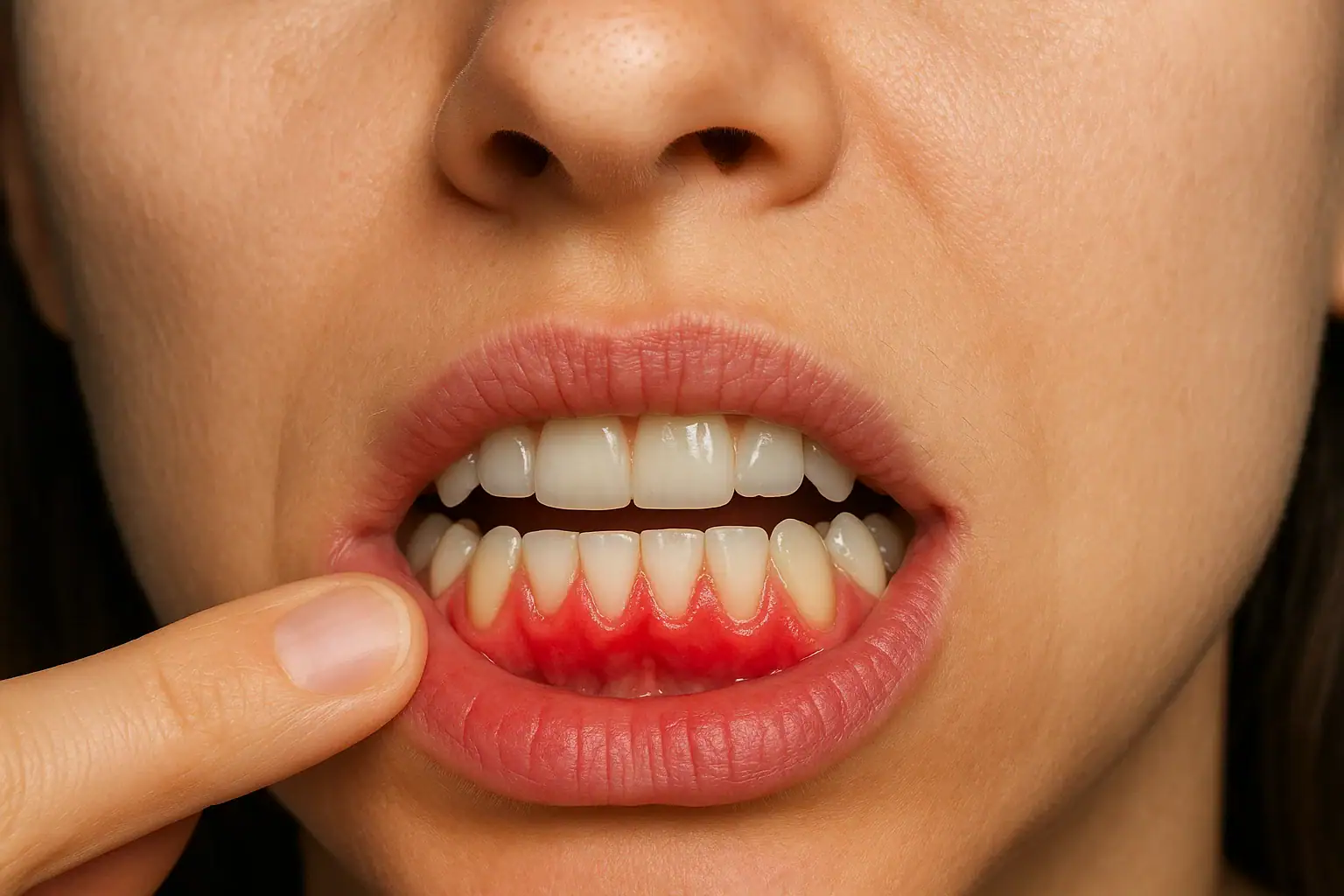Menu
Free Consultation

Gum health plays a critical role in maintaining overall oral hygiene. When gums become inflamed, it can indicate a range of underlying issues, from mild irritation to the early stages of periodontal disease. But what exactly are inflamed gums, and how do you treat them effectively?
In this comprehensive guide, we'll explore the causes of inflamed gums, how to recognize them, effective treatment for inflamed gums, and preventive tips to keep your gums healthy. Whether you're wondering “how do I get rid of inflamed gums?” or “why are my gums inflamed?”, this blog has you covered.
💡 Did You Know? The CDC estimates that nearly half of adults aged 30 and older show signs of gum disease—often starting with inflamed gums.
Inflamed gums, medically referred to as gingivitis, occur when the soft tissue around the teeth becomes swollen, red, and irritated. This condition can range from mild inflammation to more serious gum disease if left untreated.
🦷 Clinical Tip: In some cases, inflammation may be present without visible signs. Routine dental checkups are crucial for early detection.
Understanding the cause is the first step toward healing. Here are the most common reasons behind inflamed gums:
Plaque buildup due to inadequate brushing or flossing is the most common cause of gum inflammation. The bacteria in plaque irritate the gum tissue.
Gingivitis is the early stage of gum disease. If untreated, it can progress to periodontitis, which can cause bone loss and tooth loss.
Hormonal fluctuations during pregnancy, menstruation, or menopause can increase gum sensitivity and inflammation.
📌 Pregnancy Gingivitis affects up to 70% of pregnant women due to hormonal changes.
Tobacco limits oxygen in the bloodstream, impairs immune response, and increases susceptibility to gum infections.
Deficiencies in vitamin C, vitamin D, and calcium can impair gum health and healing.
Braces, dentures, or retainers that don’t fit properly may irritate gum tissue and lead to inflammation.
Certain medications (e.g., antihistamines, diuretics) reduce saliva flow, causing dry mouth and increasing bacterial activity in the mouth.
Diseases such as diabetes, leukemia, and autoimmune disorders can contribute to chronic gum inflammation.
Removing tartar buildup through professional cleaning is essential to treating inflamed gums.
Mix 1/2 teaspoon of salt in a glass of warm water and rinse your mouth twice daily to reduce swelling and kill bacteria.
Topical or oral antibiotics may be prescribed in moderate to severe cases.
A deep cleaning procedure to remove plaque from beneath the gumline and smooth root surfaces.
Minimally invasive treatment using lasers to remove infected tissue and promote healing.
These natural remedies can be helpful for mild gum inflammation:
Apply directly to the gums to soothe inflammation.
Drink regularly to reduce inflammation thanks to its antioxidant properties.
Apply to gums for its curcumin content, a powerful anti-inflammatory agent.
Mix 1 part hydrogen peroxide with 2 parts water. Swish gently but do not swallow.
Swish coconut or sesame oil in the mouth for 10–15 minutes daily to reduce bacteria.
⚠️ Note: These methods are supportive. Persistent gum issues require professional dental care.
See a dental professional if symptoms persist for more than a week or worsen.
Brush, floss, and rinse with antibacterial mouthwash daily. Schedule a dental cleaning and follow your dentist’s recommendations.
Try saltwater rinses, aloe vera, turmeric, green tea, and oil pulling as complementary remedies.
Sudden inflammation may stem from new dental appliances, stress, hormonal shifts, or a lapse in oral care.
Consistent brushing and flossing, combined with professional care and anti-inflammatory rinses, can produce results within a few days.
Adopt long-term healthy habits, visit your dentist regularly, and address any underlying health conditions.
Inflamed gums are not just a minor annoyance—they are a red flag for deeper oral health issues. Whether caused by poor hygiene, systemic conditions, or hormonal shifts, prompt action can prevent complications.
By adopting a preventive care routine, using treatment for inflamed gums, and consulting with dental professionals, you can maintain strong and healthy gums for life.
✅ Healthy gums are essential for a confident, pain-free smile. Start taking care of them today!
